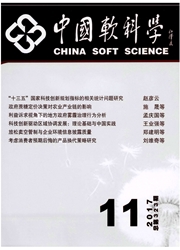

 中文摘要:
中文摘要:
基于中国-东盟投资自由协议签订的背景,本文区分了投资自由化的资本导向型和技术导向型增长效应,并考虑了其对于电子通讯行业和其他行业影响作用的差异性,采用中国动态CGE模型(MCHUGE模型),评估了投资自由化背景下新加坡对华投资对于我国宏观经济及产业发展的影响。结果表明,在宏观层面上,中-新投资自由化对刺激消费、扩大内需、增加就业、提高居民福利具有积极作用;在行业层面上,主要通过国内市场效应扩大了电子信息产业的产出,但减少了该行业的就业;促进了我国服务业和技术密集型产业的发展,而抑制了纺织业、服装业等传统制造业的产出增长,积极推动了我国产业结构的调整。
 英文摘要:
英文摘要:
Keeping in mind on the signing of investment agreement between China and ASEAN,this paper distinguishes investment-led and technology-led growth effects from investment liberalization,and considers their different effects on electronics industry and others.We apply the dynamic CGE model(MCHUGE model) to evaluate the effect of Singapore's investment liberalization on macroeconomic and industrial development.The results show that at the macro level further investment liberalization between China and Singapore will stimulate consumption,expand domestic demand,increase employment and improve residents' welfare.At the industry level,the investment liberalization will increase the output of the electronic information industry through the effects of the domestic market,but reduce employment in this industry.It will also promote the adjustment of industrial structure by simulating the development of services and technology-intensive industries and decrease the output of other traditional manufacturing such as textile and clothing.
 同期刊论文项目
同期刊论文项目
 同项目期刊论文
同项目期刊论文
 期刊信息
期刊信息
